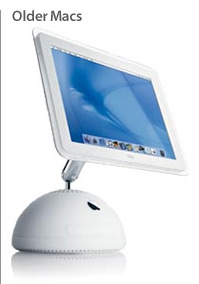This article brought up two points of discussion for me:
1) How the internet truly is breathing a new life into the music industry, they just don't really know or understand it yet.
2) I was reminded of the satisfaction one has in discovering artists of the past and just how much they've influenced my favorite bands of today.
 Point #1: The music industry (amongst other content industries) continues to grapple with monetizing a move from hardware to software. For a long time there's been the sense that once recordings are released into the atmosphere the artists (and more importantly the labels) lose control over them and consequently are unable to make money off of them. The truth of the matter though is that the internet gives fans and collectors an infinite Virgin megastore at their fingertips. And what's better, there are more tools to growing and influencing your music collection on the web than there ever could be in a brick and mortar store. The "if you like", "other listeners also bought" and similar such programs open up listeners eyes and ears to the endless spider web of musicians that he or she might find themselves in love with - almost a democratization of the encyclopedia of musical recordings out there: now anyone can have them, not just obsessive compulsive collectors.
Point #1: The music industry (amongst other content industries) continues to grapple with monetizing a move from hardware to software. For a long time there's been the sense that once recordings are released into the atmosphere the artists (and more importantly the labels) lose control over them and consequently are unable to make money off of them. The truth of the matter though is that the internet gives fans and collectors an infinite Virgin megastore at their fingertips. And what's better, there are more tools to growing and influencing your music collection on the web than there ever could be in a brick and mortar store. The "if you like", "other listeners also bought" and similar such programs open up listeners eyes and ears to the endless spider web of musicians that he or she might find themselves in love with - almost a democratization of the encyclopedia of musical recordings out there: now anyone can have them, not just obsessive compulsive collectors.This theory is nothing new, and in fact it is what's fueling the rapid growth of information sites like Wikipedia. I recently read an interview with Wiki founder Jimmy Wales in Good Magazine (a great new mag, btw) in which he was quoted as saying "One of the biggest problems of the digital divide is the cost of access to information... We seek to make that cost as close to zero as possible." Now, there's no way that's a possibility for the music industry as the artists need to live, but there is a sort of barrier to embracing the fact that this democratization of recordings and musical information is a good, ne great, thing for the music industry.
 Point #2: This point was actually fueled earlier this week by the Built to Spill show I saw at Warsaw in Brooklyn. Sitting in the crowd and looking at the remarkably varied ages of the concert-goes I was reminded that a band like BtS has been around for about 15 years, and listening to Doug March's hauntingly captivating voice and guitar riffs it was nearly impossible not to think of bands at the height of their popularity - i.e. Death Cab for Cutie, Modest Mouse - were directly influenced by BtS.
Point #2: This point was actually fueled earlier this week by the Built to Spill show I saw at Warsaw in Brooklyn. Sitting in the crowd and looking at the remarkably varied ages of the concert-goes I was reminded that a band like BtS has been around for about 15 years, and listening to Doug March's hauntingly captivating voice and guitar riffs it was nearly impossible not to think of bands at the height of their popularity - i.e. Death Cab for Cutie, Modest Mouse - were directly influenced by BtS.Despite what some critics might fault as an inability of artists to create anything new (is everything we listen to really just a recycled version of something of the past) I love to hear influences of past musicians in my new favorites. Just like The Rapture sings on their new album, "everybody's got a little piece of someone they hide" it's fascinating to realize that contemporary artists like Jenny Lewis probably listened to Eels and carried that twangy, soulful, singer-songwriter theme through her writing in Rilo Kiley and in her own band. And to hear Guided By Voices' disjointed sometimes Ramones-esque and more often Pixie-ish 2 minute songs pop up as softer versions in Dirty on Purposes' albums - well, it's just enjoyable for me.


No comments:
Post a Comment